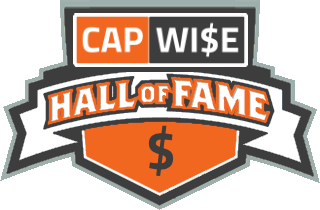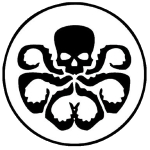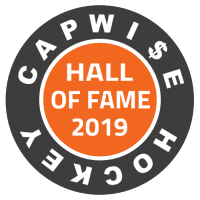
June 2019
In a salary cap world, the mark of a talented GM is not whether or not he’s won a few championships – rather, it’s how well he’s been able to sustain that success over time. To know a truly great GM, you need the benefit of time, to witness the year-after-year performance of a team. And in this league, where every single rule is specifically designed to fight against your sustained success, the upstream battle is all the more difficult. So when a manager is able to find a way to outswim the current and remain near the top for 11 long seasons, there should be little doubt that this GM is among the very best in the world.
 At first glance, Jefferson Hagen (better known as JRoc) may not stand out as an elite GM. After a combined 32 opportunities for a league banner, he has “just” 6 to his name, and only one CHA Championship banner graces the rafters. But a deeper dive will reveal that underestimating JRoc might just be the worst thing you can do. In fact, it may or may not be the reason my Brewpens have yet to earn a banner.
At first glance, Jefferson Hagen (better known as JRoc) may not stand out as an elite GM. After a combined 32 opportunities for a league banner, he has “just” 6 to his name, and only one CHA Championship banner graces the rafters. But a deeper dive will reveal that underestimating JRoc might just be the worst thing you can do. In fact, it may or may not be the reason my Brewpens have yet to earn a banner.
JRoc’s place in the Capwise Hall of Fame can be summed up in one single statistic: in 11 PCFL seasons JRoc’s Black Harbour Octopi have finished top 3 in the league a remarkable 8 times. Over the last 7 regular seasons, they’ve finished 1st or 2nd on six occasions. This type of sustained success is no accident, and it’s as clear a picture as you’ll find of a roster-building genius.
Roster building comes naturally to JRoc, who has long had a fondness for the art. “I love roster construction. I’ve always done it. Not sure if I should admit this because it’s really nerdy, but when I was a kid, pre-internet, I used to create my own league with my hockey cards, spending hours playing stacks of cards against each other via stats and numbers, and recording all of the player stats,” JRoc confesses. “Essentially, fantasy hockey now for me is an extension of that level of pre-teen nerdiness.” Applying this type of statistical research to Capwise is not always an easy task. For JRoc, it has always been about finding the right players, rather than the highest-scoring. “I’ve long tried to draft power forwards instead of pure offensive talents,” he said. “I may not have always had the highest-scoring teams, but rarely did they get out-hit or out-shot.”
 But drafting power forwards doesn’t really explain the long-term success. Finding the will to stay in the fight year after year is an exhausting proposition, but JRoc has never found much value in rebuilding. “I’ve never tried a full rebuild. Retool and reload, yes, and occasionally selling the odd trade deadline piece, but never a complete teardown. My philosophy is I’m trying to win every year and that will never change.” This strategy has panned out well with well-timed moves that seemed risky at the time. “One of my favourites was trading then-multi-cat stud Brent Seabrook right before he signed that terrible contract and declined for the pick that would become Matthew Tkachuk.” (JRoc later flipped Tkachuk to your dear commissioner for Vincent Trocheck, thus avoiding a $5.5 million RFA bid, and earning himself yet another league title).
But drafting power forwards doesn’t really explain the long-term success. Finding the will to stay in the fight year after year is an exhausting proposition, but JRoc has never found much value in rebuilding. “I’ve never tried a full rebuild. Retool and reload, yes, and occasionally selling the odd trade deadline piece, but never a complete teardown. My philosophy is I’m trying to win every year and that will never change.” This strategy has panned out well with well-timed moves that seemed risky at the time. “One of my favourites was trading then-multi-cat stud Brent Seabrook right before he signed that terrible contract and declined for the pick that would become Matthew Tkachuk.” (JRoc later flipped Tkachuk to your dear commissioner for Vincent Trocheck, thus avoiding a $5.5 million RFA bid, and earning himself yet another league title).
Of course, there’s always a bit of luck involved in fantasy hockey. “It was certainly lucky to get the first overall pick in the inaugural draft in 2008 where I selected future fantasy (and real life) hockey Hall of Famer Alex Ovechkin. He’s still on my PCFL team 11 years later.” Powered by Ovechkin, the Octopi have been able to retool on the fly for years, without sacrificing their ability to compete.
The question must be asked, though – how long can this success be sustained? “The core of top players on the Octopi are certainly aging (Ovechkin, Bergeron, Weber, Crawford), but I believe there are enough young pieces to remain competitive,” said JRoc. “We’ll see if they can compete with a few of the really up-and-coming rosters in the PCFL.” If history tells us anything, you’d better not bet against it.
